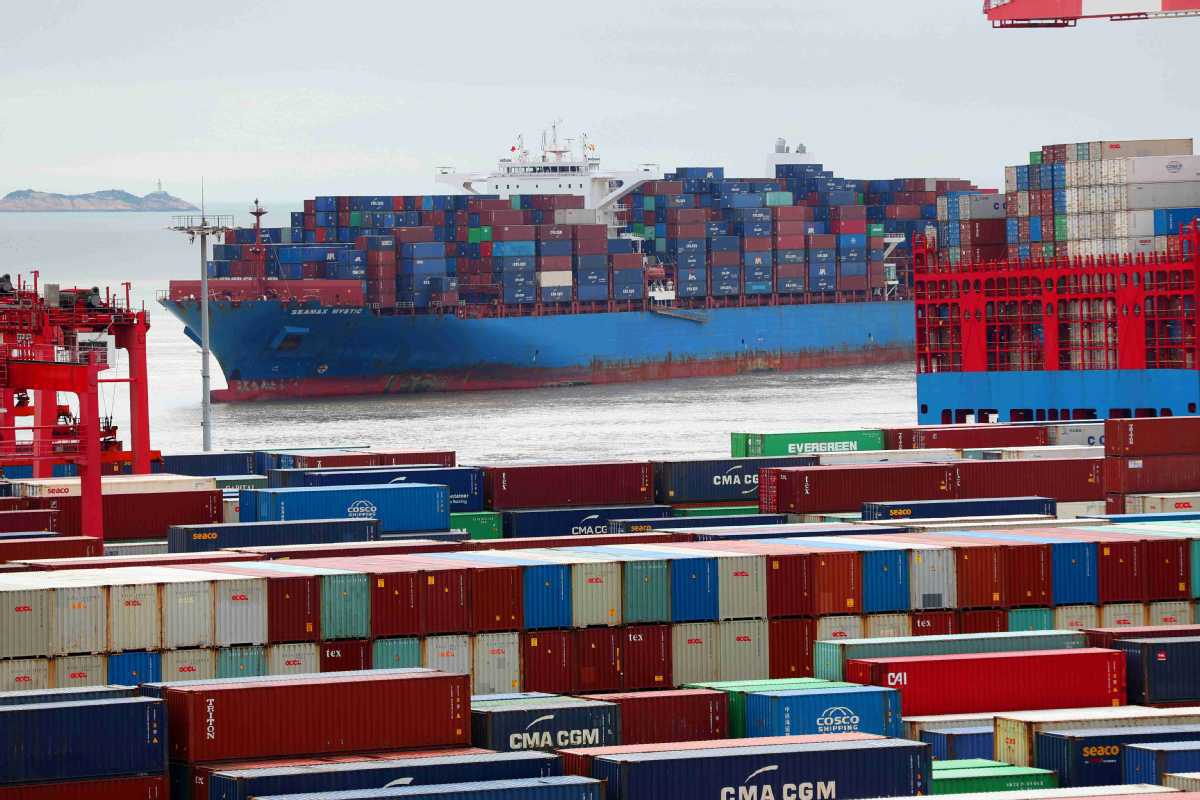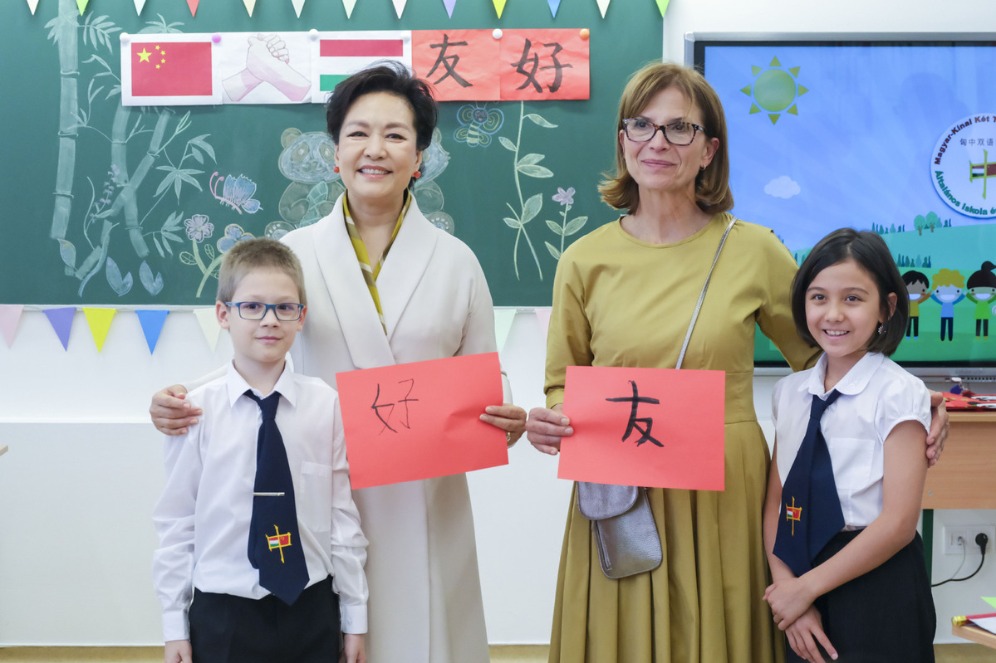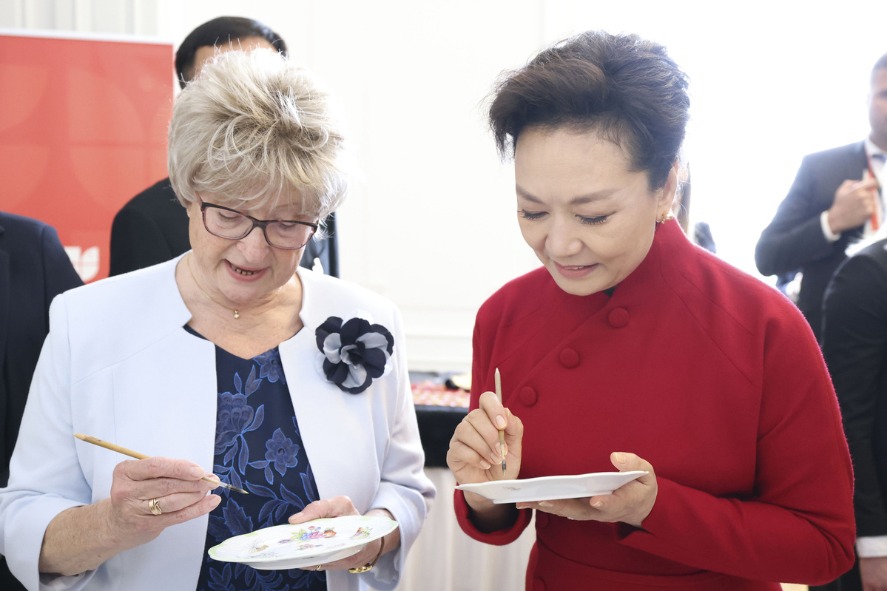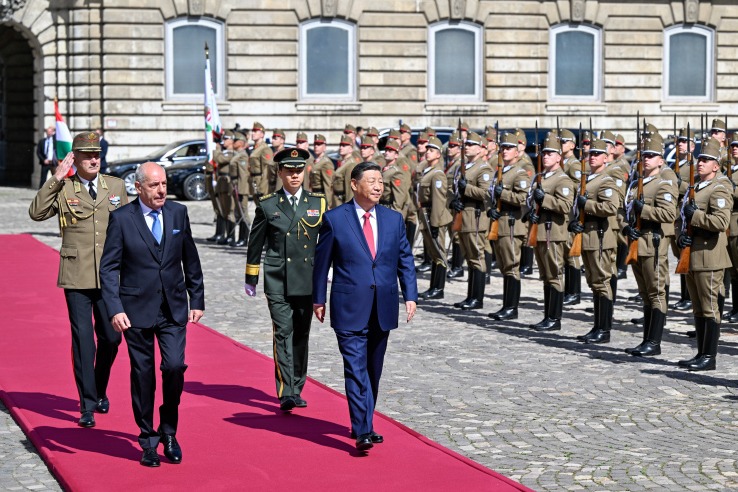Export restrictions not meant to target any country
By MA SI | chinadaily.com.cn | Updated: 2023-07-05 01:18

China's decision to restrict export of industrial products and materials containing gallium and germanium is not targeted at any specific country and is in line with the international practice of placing more emphasis on protecting strategic mineral resources, officials and experts said on Tuesday.
The comments follow the announcement by China's Ministry of Commerce on Monday that the country will impose export restrictions starting on August 1 to protect its national security and interests. Gallium and germanium are important raw materials for the semiconductor industry.
Speaking at a news conference on Tuesday, Foreign Ministry spokeswoman Mao Ning said that China's export controls are law-based and don't target any specific country. "China has always been committed to maintaining the security and stability of global supply chains, and has always implemented fair, reasonable and nondiscriminatory export control measures," she added.
Experts said that China's move is in line with the international practice of protecting key mineral resources, which are now important for the development of strategic emerging industries.
Han Xiaomin, general manager of JW Insights, a Chinese semiconductor market research company, said that gallium oxide is among the materials on which China has imposed export restrictions. However, China is not the first country to do so.
In August 2022, the United States Department of Commerce announced export controls on gallium oxide and diamond, because "devices that utilize these materials have significantly increased military potential".
"Washington has already restricted the export of gallium oxide, why can't China?" Han said.
Experts said it is the US that has disrupted global chip supply chains by imposing a slew of chip export control measures against China and by pressuring its allies such as the Netherlands and Japan to adopt similar moves.
The blame should never be shifted on China as it is defending its legal national interests, said Chen Xiang, an associate research fellow at the Chinese Academy of Social Sciences.
Investment company Jefferies said in a research note that China accounts for 80 percent of global output of the restricted materials and the move may be China's countermeasure against the US-led chip export controls.
More countermeasures may be in the pipeline, if the US imposes tougher chip restrictions, said Chen from the Chinese Academy of Social Sciences.
Chen Fengying, a researcher at China Institutes of Contemporary International Relations, said that key mineral resources have become a new battlefield for major economies amid a complex geopolitical environment.
Many rare and key metals in the international market are supplied by China. "Why does China supply such key raw materials to those that attempt to contain its chip industry?" she said.
"The mining of both involves heavy pollution. Protecting limited resources via export controls is also to protect national security and interests," she added.
US semiconductor wafer maker AXT Inc said on Monday that its Chinese subsidiary Tongmei will immediately proceed to apply for the permits to keep exporting gallium and germanium substrate products from China.
In the first quarter, gallium arsenide and germanium substrates exported from China contributed about $4.3 million in revenue, AXT said on its official website.
Gallium nitride and gallium arsenide compound semiconductors are used for products ranging from power electronics to 5G base stations. Germanium is used in infrared technology, fiber optic cables and solar cells.
Xiang Libin, vice-minister of science and technology, said in a speech in May that the ministry has always attached great importance to technological innovation and industrial development of third-generation semiconductors comprising materials such as gallium nitride, as they show good performance and have a huge market potential in new energy vehicles, information communication, smart grids and other fields.
























